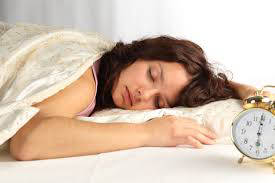
Sleeping In A Hole
Ever wonder why your back is sore when you wake up from sleeping? Feel like you got an eight hour back work out while you were sleeping? Can’t relax in bed in the morning because the back pain makes you uncomfortable? It is probably because you are sleeping in a trench! "If you can fit three fingers between your lower back and the mattress, then it's not giving enough support," says Karin Mahoney, director of the Better Sleep Council. When your body doesn’t receive the proper support it needs while you sleep, your back ends up doing all the work, hence the back pain when you wake up. Mahoney recommends rotating the mattress by 180 degrees every six months or so to keep the pressure even as the mattress is being used. Sleep experts are always hesitant to recommend the perfect model, material or brand of mattress, due to the fact that comfort is subjective and therefore different per individual, but medium-firm has been shown in studies and through patient reports to be comfortable for most people. Your body will let you know when it is time for an upgrade when you regularly wake up with stiffness, numbness and back pain! It is common practice to test-drive mattresses at hotel chains before committing to a purchase, or working with a distributor that has a comfort guarantee to truly test out the mattress. For the shopper that shops on averages, according the industry data, queen-sized innersprings are the most popular in the U.S. but the new gel mattresses are said to be a comfortable and low stress alternative.
-https://bettersleep.org
Pillow Height
A pillow is essential to a good night’s sleep and waking up feeling energetic! This is when it really matters if you are a back, side, or stomach sleeper. The purpose of a pillow is to properly align the spine but if you don’t get the right fit for the pillow you could be doing more harm than good. For the stomach sleepers, you have to make sure your pillow isn’t too thick. If you get a pillow that is too thick it will push your head back! Not only will this be extremely uncomfortable but it could also cause some knots in your neck. For the back sleepers, a medium sized pillow seems to be best. If you go too thin you won’t have the proper support for your head and neck but if you go too thick your chin will be touching your chest. You will know when you found the right level when your head isn’t being forced into an awkward angle. Last but not least, the side sleepers. The typical side sleeper seems to have a fairly large profile and space to fill when they are on their side. This is when a thick pillow comes into play. Thick pillows can typically fill the big gap efficiently, providing the amount of support side sleepers crave. A well sized pillow can save you from weeks of unwarranted neck and shoulder pain.
Breathe Easy
The optimal way to breathe in general is through the nose, says Nancy Collop, MD, president of the American Academy of Sleep Medicine. Our noses warm the air and filter out dirt and other particles. When sleeping, especially when on the back, breathing passageways can start to be partially obstructed either by your tongue or objects around you. When an air passage is blocked, the typical response is to open the mouth creating another air passage. Breathing through the mouth, especially while sleeping, can lead to snoring, throat irritation, intense dry mouth and even abnormal respiration and sleep apnea. This is when adjustable bases become medically advantageous. That’s right; they aren’t just for sitting up in bed to see the TV better! With a slight lift of the head, typically referred to as a pillow tilt, you can help open up the breathing pathways which allow you to use your nose, stop the snoring, and most importantly, sleep throughout the night.
Too Hot In Here?
The body actually uses temperature to help us get tired and prepare us for sleep. Cold temperatures make us drowsy, and a falling core body temperature helps us get to sleep faster. If you want to fall asleep faster and more efficient, try and help this process along. You can do this by turning down the heat and keeping your bedroom cool (ideally, around 60 to 68 degrees). Opening the windows also helps bring in fresh, oxygen-rich air (unless you live near a freeway), which can contribute to a healthy sleep cycle. Most importantly, it is good to know that there is a certain period of REM sleep during which your internal heating and cooling systems change and you become more sensitive to the temperature of the air around you. If you wake up at this point it may interrupt the point in your sleep cycle where you are actually gaining energy. Luckily, technology has advanced in the mattress industry and most mattresses have some sort of way to orientate your temperature. These gel foams or phase change materials won’t make you cold but they do keep you at one sleeping temperature so that you don’t awake to any temperature changes and can sleep fully throughout the night.
A Cool Bed Just Isn’t Cool Enough!
Even if you sleep on a cooler mattress, in a cold room, you may still wake up soaked in sweat. This is commonly due to your sheets or even your pajamas underperforming. Luckily, the mattress industry has advanced in stride when it comes to heat. Several new technologies and products address the problem of night sweats and overheating, such as: cooling mattress protectors, performance protectors and sheets that are made from wicking fabrics, and even pillows with cooling technology.
Tossing And Turning?
If you get mad at your significant other every time they get in and out of bed for waking you up, stop getting mad at them and get mad at your mattress. The mattress jiggles are a problem of the past nowadays with most decent mattresses being made with independently pocketed coils. With the coils no longer being connected through a steal rod, they act independently of one another, minimizing the movement between you and your partner. Memory foam is also known to help with this type of dynamic response! If you really need to tackle that mattress movement, your best bet is a little of both worlds; a hybrid!
